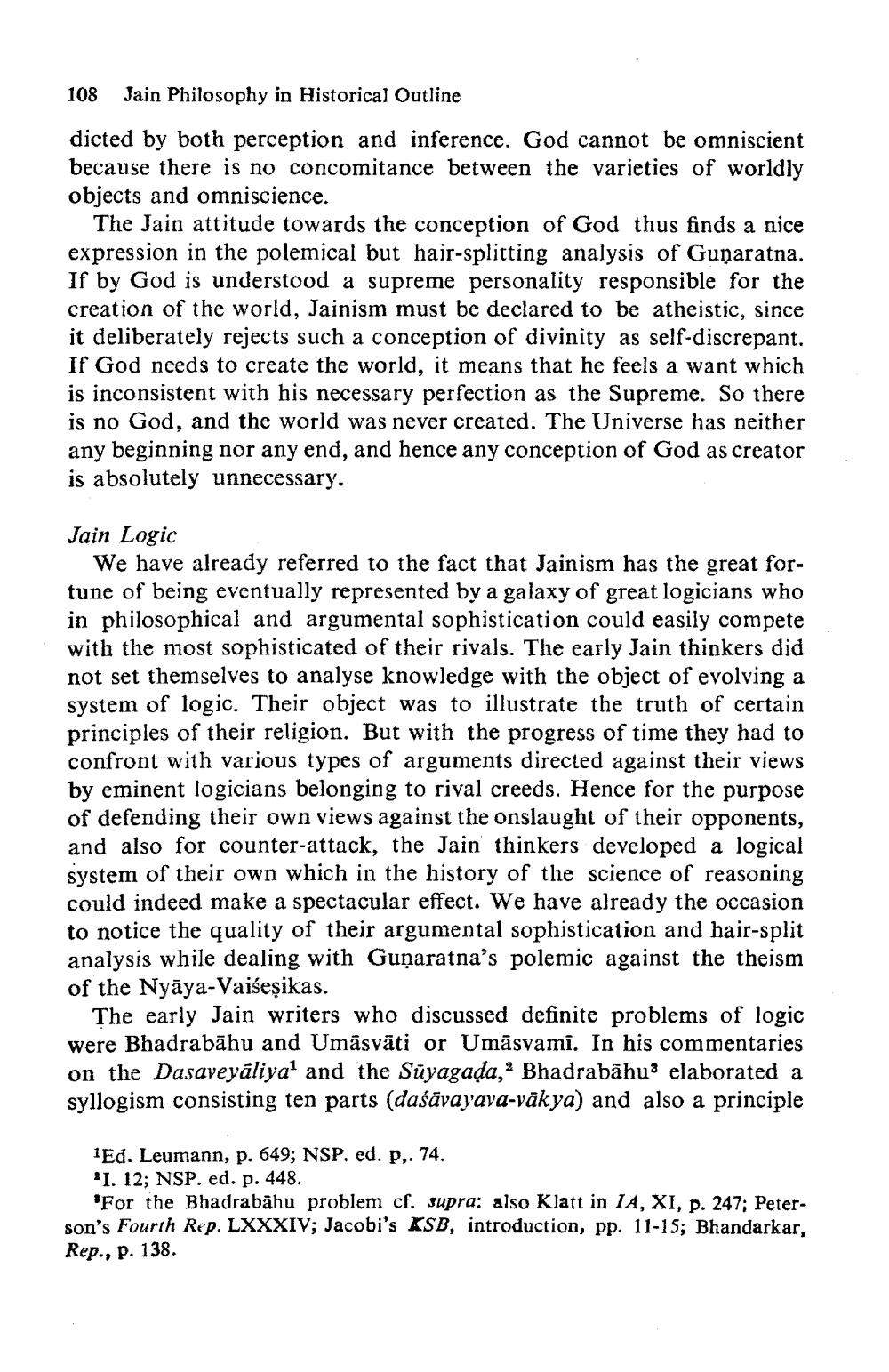________________
Jain Philosophy in Historical Outline
dicted by both perception and inference. God cannot be omniscient because there is no concomitance between the varieties of worldly objects and omniscience.
The Jain attitude towards the conception of God thus finds a nice expression in the polemical but hair-splitting analysis of Gunaratna. If by God is understood a supreme personality responsible for the creation of the world, Jainism must be declared to be atheistic, since it deliberately rejects such a conception of divinity as self-discrepant. If God needs to create the world, it means that he feels a want which is inconsistent with his necessary perfection as the Supreme. So there is no God, and the world was never created. The Universe has neither any beginning nor any end, and hence any conception of God as creator is absolutely unnecessary.
108
Jain Logic
We have already referred to the fact that Jainism has the great fortune of being eventually represented by a galaxy of great logicians who in philosophical and argumental sophistication could easily compete with the most sophisticated of their rivals. The early Jain thinkers did not set themselves to analyse knowledge with the object of evolving a system of logic. Their object was to illustrate the truth of certain principles of their religion. But with the progress of time they had to confront with various types of arguments directed against their views by eminent logicians belonging to rival creeds. Hence for the purpose of defending their own views against the onslaught of their opponents, and also for counter-attack, the Jain thinkers developed a logical system of their own which in the history of the science of reasoning could indeed make a spectacular effect. We have already the occasion to notice the quality of their argumental sophistication and hair-split analysis while dealing with Gunaratna's polemic against the theism of the Nyaya-Vaiseṣikas.
The early Jain writers who discussed definite problems of logic were Bhadrabahu and Umāsvāti or Umāsvami. In his commentaries on the Dasaveyāliya1 and the Suyagaḍa,2 Bhadrabāhu3 elaborated a syllogism consisting ten parts (daśāvayava-vākya) and also a principle
1Ed. Leumann, p. 649; NSP. ed. p. 74.
*I. 12; NSP. ed. p. 448.
For the Bhadrabāhu problem cf. supra: also Klatt in IA, XI, p. 247; Peterson's Fourth Rep. LXXXIV; Jacobi's KSB, introduction, pp. 11-15; Bhandarkar, Rep., p. 138.




